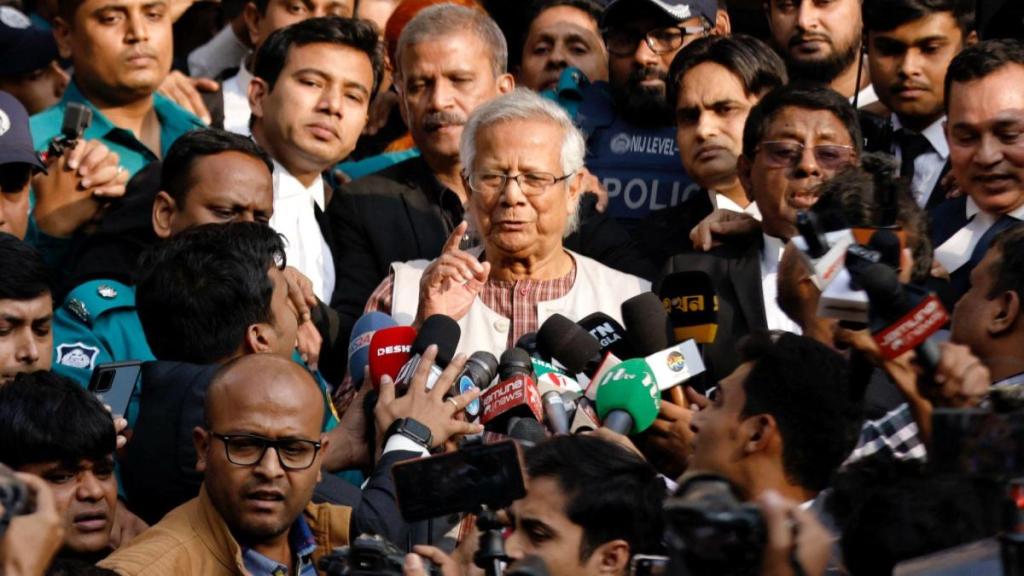In 1971, when Bangladesh’s people faced unimaginable atrocities during its war of liberation, India stood as an unwavering ally. Despite its limited resources and nascent military capabilities, India played a decisive role in the country’s independence, sacrificing lives and bearing the economic burden of millions of refugees. Yet, over half a century later, Bangladesh’s diplomatic stance appears to be drifting, raising pertinent questions about its gratitude and strategic wisdom.
A Neighbour’s Growing Resentment
India’s contributions to Bangladesh’s development and security have been substantial and consistent. From landmark initiatives like the Maitree Express and the India-Bangladesh Friendship Pipeline to military exchanges and maritime collaboration, New Delhi has consistently prioritised Dhaka under its “Neighbourhood First” policy. Despite these efforts, a perceptible rise in anti-India sentiment has begun to strain relations.
Protests in Dhaka earlier this year, fuelled by nationalist rhetoric, saw slogans against India and accusations of undermining Bangladeshi sovereignty. Meanwhile, the Bangladeshi government’s increasing economic and diplomatic ties with China have added to the tensions, creating concerns in New Delhi about its neighbour’s commitment to their longstanding partnership.
Courting Beijing: At What Cost?
Bangladesh’s tilt towards Beijing has raised eyebrows across South Asia. Chinese investments in infrastructure, ports, and other critical sectors have made Dhaka increasingly reliant on loans from China. This has led to fears that Bangladesh, like Sri Lanka and Pakistan, could fall victim to Beijing’s “debt trap diplomacy”. Projects such as the Payra Deep Sea Port, funded by China, could serve dual purposes, raising concerns about potential military usage that might undermine regional security.
India has repeatedly warned its neighbours about the risks of unchecked Chinese influence, yet Dhaka seems to be treading the same path as other nations that have struggled under the weight of Chinese loans. New Delhi’s strategic and economic interests in the Bay of Bengal, particularly in countering Chinese encroachments, make this shift even more troubling.
India’s Strategic Edge
India has come a long way since 1971, emerging as a global economic and military powerhouse. India’s position in South Asia is unparalleled, with one of the world’s largest armed forces, a thriving space programme, and rapidly expanding economic influence. Its maritime strategy, encapsulated in the SAGAR (Security and Growth for All in the Region) initiative, aims to ensure peace and stability in the Indo-Pacific.
However, patience in New Delhi is not infinite. While India remains committed to fostering regional stability, the shifting allegiances of its neighbours could result in a more pragmatic approach to diplomacy. Bangladesh must realise that alienating India risks its economic progress and its role as a significant player in South Asia.
Economic Decisions Speak Volumes
Bangladesh’s recent search for alternative trade partners, including Pakistan, for essential goods like onions and potatoes further highlights the weakening ties with India. Rising trade barriers and a preference for Chinese goods have further isolated India from Bangladesh’s economic framework despite years of goodwill and support.
Meanwhile, projects like the Bangladesh-China Friendship Bridge and other BRI-linked infrastructure developments indicate Dhaka’s increasing dependence on Beijing. This economic pivot away from India could have long-term implications for both nations.
A Moment of Reflection
India has long viewed itself as the region’s stabilising force, offering developmental assistance, security cooperation, and economic partnerships to its neighbours. Yet, Bangladesh’s growing scepticism towards India’s intentions threatens to derail this relationship. Dhaka must introspect whether aligning closely with Beijing at the expense of its ties with India is a sustainable strategy.
As South Asia stands at a critical juncture, Bangladesh faces a choice: to remain a part of India’s growth story or risk becoming a pawn in the larger geopolitical game being played by external powers. For a country that owes its very independence to Indian sacrifices, the stakes could not be higher.
The Path Forward
Bangladesh must reaffirm its commitment to India as a strategic and economic partner to repair the cracks in this relationship. Bilateral engagement must prioritise shared goals, including regional stability, countering terrorism, and securing trade routes in the Bay of Bengal. At the same time, India must continue emphasising the importance of mutual respect and trust in its regional policies.
History has shown that a united South Asia can thrive in the face of global challenges. Bangladesh must decide whether it wishes to stand with India as a trusted ally or risk isolation in an increasingly polarised world. The clock is ticking, and the choices Dhaka makes today will shape not only its destiny but also the region’s future.

